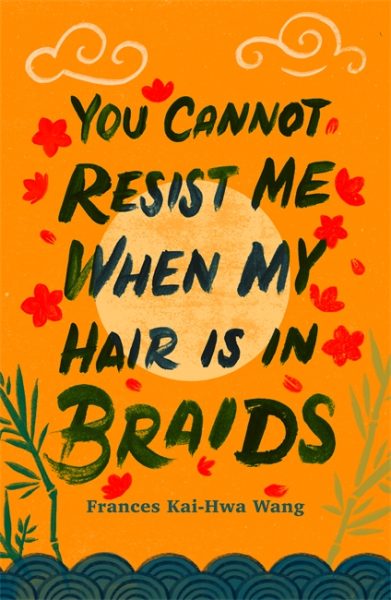You Cannot Resist Me When My Hair Is In Braids

By Frances Kai-Hwa Wang
Frances Kai-Hwa Wang an incredibly accomplished journalist, essayist, speaker, and poet focused on issues of diversity, race, culture, and the arts. She teaches Asian/Pacific Islander American civil rights, history, film, and media at the University of Michigan. See the Product Description below for details about this book. Please buy all of your books directly from the author or an independent Michigan bookstore.
| Product Price | $19.99 |
Product Description
In the aftermath of a messy divorce, Frances Kai-Hwa Wang writes in the hope of beginning to build a new life with four children, bossy aunties, unreliable suitors, and an uncertain political landscape. The lyric essays in You Cannot Resist Me When My Hair Is in Braids deftly navigate the space between cultures and reflect on lessons learned from both Asian American elders and young multiracial children, punctuated by moments rich with cultural and linguistic nuance. In her prologue, Wang explains, “Buddhists say that suffering comes from unsatisfied desire, so for years I tried to close the door to desire. I was so successful, I not only closed the door, I locked it, barred it, nailed it shut, then stacked a bunch of furniture in front of it. And now that door is open, wide open, and all my insides are spilling out.”
Full of current events of the day, the topics in the collection are wide ranging, including cooking food to show love, surviving Chinese School, being an underpaid lecturer, defending against yellow dildos, navigating immigration issues, finding love in a time of elections, crying with children separated from their parents at the border, charting the landscape of frugal/hoarder elders during the pandemic, witnessing COVID-inspired anti–Asian American violence while reflecting on the death of Vincent Chin, teaching her sixteen-year-old son to drive after the deaths of Trayvon Martin and George Floyd, and trusting the power of writing herself into existence. Within these lyric essays, some of which are accompanied by artwork and art installations, Wang finds the courage and hope to speak out for herself and for an entire generation of Asian American women.



